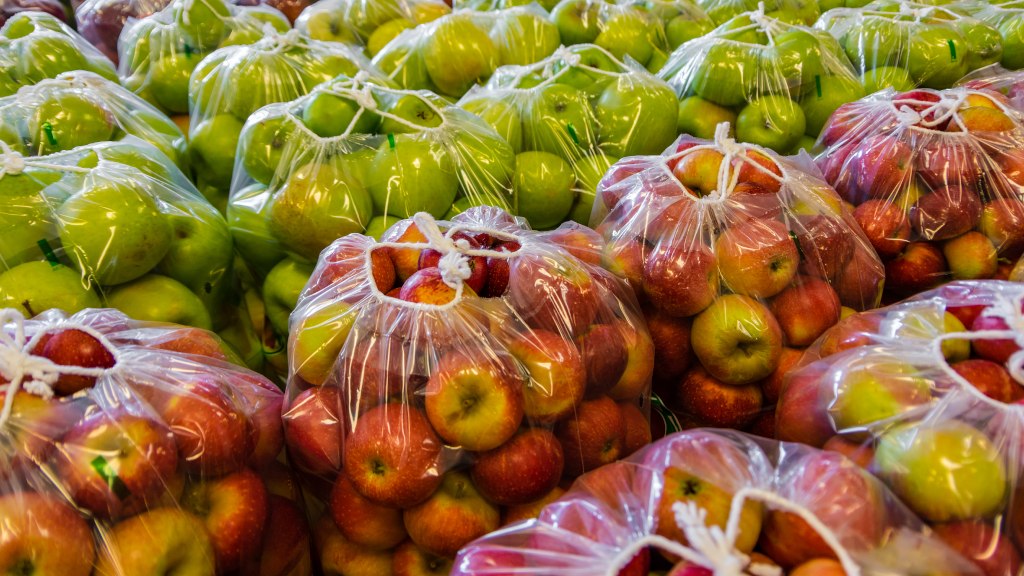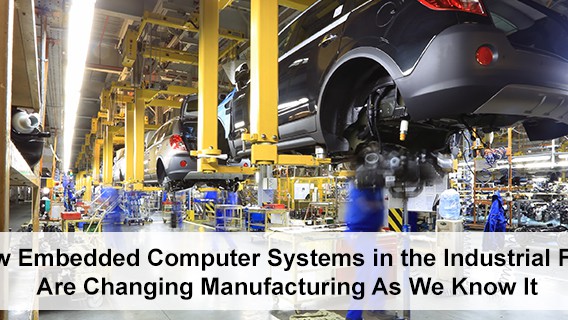Product recalls are part and parcel of business, but they are of particular importance when it comes to food. Tainted food presents an active health risk in ways that other products don’t, and because most food is both perishable and vulnerable to toxins, a recall needs to be enacted swiftly and efficiently. The U.S. Food and Drug Administration issues about 8,000 recalls on food products every year. Any company that works in the food industry needs to be prepared for that eventuality.
The right industrial computers can play a role in minimizing the impact of a food recall: ensuring that the affected product is identified and returned as swiftly as possible while minimizing the impact on other aspects of your business. Knowing what kind of features a given industrial PC should have in such circumstances – and acting on that information in anticipation of a recall instead of reacting after a recall has been ordered – can make a huge difference in how swiftly your business can recover.
Tracking and Identifying the Recalled Product
The U.S. government utilizes Hazard Analysis and Critical Control Point (HACCP) principles to identify the affected food product and the source of the contamination. BIN numbers and lot numbers are a key part of this process: tracking specific parcels of food as they move from the farm to the grocery store.
Because it is the government standard, it is vital that a food manufacturer is able to present highly traceable data to minimize how much product is recalled. An industrial tablet with a barcode scanner can scan produce as it is picked from the field, assigning the date picked, the field the food came from and even the time of day the food began its journey from farm to table. RFID readers can track pallets from the warehouse to the shipping and receiving dock. And all of this data can be automatically logged into an ERP system. That level of traceability will ensure that any financial damage from a food recall is minimized.
Recording Your Process
Following a recall, the FDA conducts an audit covering all aspects of production in order to identify the cause of the recall and ensure that corrective measures have been taken. They also check to see if the cause of the recall might affect other food products, and if so, whether it should be extended to include those products. The audit will include a list of the different accounts to be audited, the details on your recall strategy, key personnel to be interviewed, and the specific methods by which the audit will be conducted. The more transparency your process has and the more reliable information you can provide the auditors, the faster the process will go and the more quickly you can move forward.
A digitally recorded process on your company’s computer network can help speed up those audits and get you back in business faster. That means copious records – dated to help establish a timeline – as well as details on the means by which the recall was undertaken. That can mean a great deal of data to sift through, as well as a consolidated record-keeping system and a means of monitoring all aspects of production. Information needs to be received from multiple sources – the course of the food, transportation, packaging facilities, and storage, among others – and yet be easily integrated and accessible with a minimum of fuss.
As a result, any industrial computer systems your operation uses should emphasize interoperability and shared data to better ensure comprehensive transparency. Enterprise resource planning software, or ERP, makes an excellent means of keeping all the needed information accessible. The software can integrate data across multiple locations, and provide superior analysis to mine actionable information from it. So instead of manually examining the data and looking for the pertinent components – a process that can waste hundreds of hours – you can use the ERP software to quickly pinpoint the key details that triggered the food recall and take appropriate action. For example, a recent case study from STIR Food used ERP software to conduct a number of mock food recalls. The software accounted for 100% of the affected product within 13 minutes of completing the task.
That, in turn, requires systems with high processing power in order to parse the data quickly. In addition, look for systems with multiple LAN connection ports that allow all of the computers in your network to interface quickly and easily on an intranet. Such efficiency can help resolve an FDA audit quickly and get your operation back up to speed.
Quality Control
Once the recall is completed, the ideal scenario is to prevent similar recalls from ever happening again. Studies show that automated processes that monitor all stages of production can spot potential problems and call for corrective measures before they become a crisis. The Internet of Things – sensor-enabled technology that can record information from any type of object – can play a huge role in this. The expansion of the IoT has increased by leaps and bounds in recent years. Business Insider projects that there will be 34 billion connected devices in the world by 2020.
The data generated by such a network can allow for automated processes at all stages of the food production chain, which in turn can aid your organization in anticipating and correcting problems before they result in a food recall. For example, IoT sensors in refrigeration trucks can monitor the temperature to ensure that it will keep any food properly chilled until it reaches its destination. Sensors can be used to monitor things like pH levels during food processing, sending alerts in the event of abnormal tests which might be the result of a contaminant in the manufacturing process.
Industrial panel PCs with human machine interface features (HMI) allow employees to receive alerts and swiftly move to halt production until a given issue can be fixed. Computer systems with such features allow the benefits of IoT to be applied more readily, and quality control to rise as a result.
Cybernet Manufacturing offers an array of business and industrial computers that can help expedite and prevent the impact of a food recall. Contact us today to hear more!
Stopping Food Waste at the Industrial Scale
April 30, 2019
With a soaring population and only a limited amount of space to expand for the growth of food production, providing enough food for the entire population may hinge on our ability to eliminate food waste. Even worse,…
0 Comments8 Minutes
4 Pieces of Food Waste Tech Transforming Food and Beverage Manufacturing
September 1, 2020
Production and manufacturing has been in the midst of a slow and meticulous metamorphosis the past few years. As innovations continue to push more supply chain visibility, automation, and efficiency, fat continues to be…
0 Comments10 Minutes
How Embedded Computer Systems in the Industrial Field Are Changing Manufacturing As We Know It
July 7, 2016
Though you may not realize it, embedded computer systems exist in many facets of our everyday lives and work. An embedded computer system is any special-purpose system that is fully enclosed. Whereas a general computer…
0 Comments4 Minutes
You Can't
Learn from a Pop-up
But we can deliver knowledge to your inbox!
We dive deep in the industry looking for new trends, technology, news, and updates. We're happy to share them with you.
Knowledge, News, and Industry Updates Right in Your Inbox





